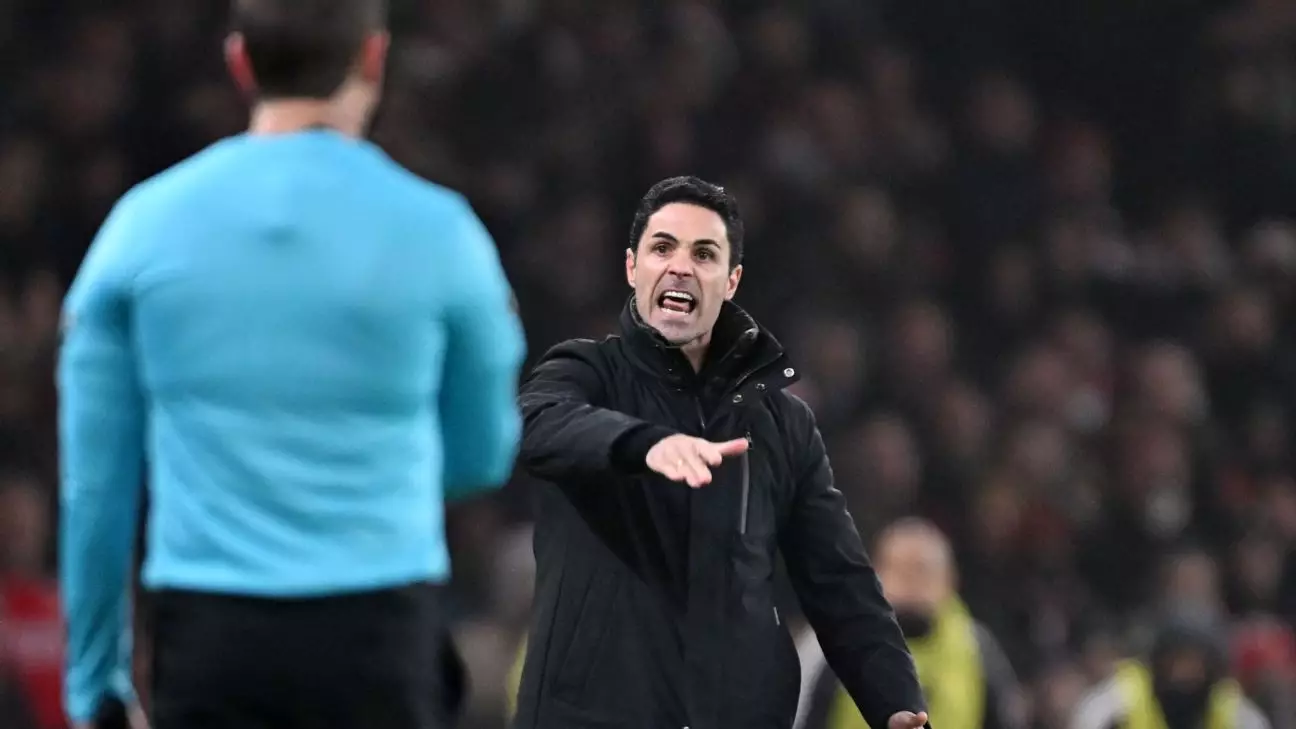The recent clash between Arsenal and Aston Villa highlighted the intense scrutiny surrounding Video Assistant Referee (VAR) decisions in football. Mikel Arteta, Arsenal’s manager, expressed his frustrations over the ruling that ruled out a late goal, which could have clinched victory for his side. This incident is just one example of the many contentious moments that VAR has introduced into the game, leaving fans and players alike questioning its effectiveness and the objectivity of its decisions.
During the exhilarating match, Arsenal was in a commanding position, having initially led with two goals. However, as the second half progressed, Villa made a robust comeback, scoring twice to level the score. In a dramatic turn of events, Arsenal’s Mikel Merino believed he had scored the winning goal when his shot deflected off Kai Havertz. That moment of jubilation was abruptly halted as VAR intervened, citing a handball, much to Arteta’s dismay. He pointed out the conflicting interpretations from various camera angles, suggesting that the decision was not cut and dry. Arteta’s post-match comments reflected a blend of frustration and a sense of empathetic understanding of the challenges faced by officials tasked with making such critical calls.
Players on both sides weighed in on the contentious decision. Ollie Watkins from Aston Villa acknowledged the complexity of the situation, admitting that if the roles were reversed, he might have felt aggrieved had the goal stood. His candid acknowledgment reflects the pressure that players feel in high-stakes matches where every decision can sway the outcome and their emotional welfare. This dialogue contributes to an ongoing conversation about VAR and its role in modern football—whether it consistently enhances fairness or introduces more confusion and frustration.
This match was more than just a fleeting moment of VAR drama; it had significant implications for Arsenal’s title hopes. The result left Arsenal trailing six points behind league leaders Liverpool, who solidified their advantage with a resounding victory over Brentford. Arteta noted that Liverpool’s ability to bring impactful substitutes into the game ultimately set them apart, a resource that Arsenal struggled to muster in light of their injury toll. With key players such as Bukayo Saka and Gabriel Jesus sidelined, the Gunners showed vulnerabilities that could complicate their pursuit of the Premier League title.
As the debate continues over VAR’s role in football, this game served as a microcosm of the broader issues plaguing the sport. Fans, players, and managers are left grappling with the emotional rollercoaster that accompanies these decisions. While VAR aims to create clarity and fairness, the instances of controversial calls only seem to deepen the conversation about its implementation. As Arsenal processes the outcome of this match and its implications for their season, the VAR narrative remains a defining element in the modern football experience—one that is complex, emotional, and still evolving.

